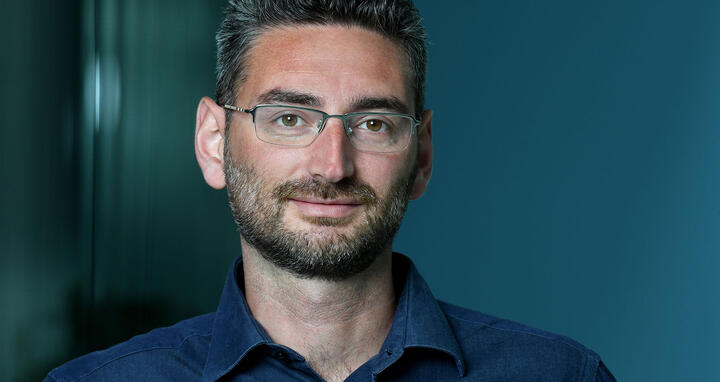Gaetano Gargiulo honored for glioblastoma research
Cancer cells arise from ordinary cells in the body that change at the genetic and epigenetic levels. The malignant cells are subject to constant change. They respond to the immune system and cancer therapies, recruit surrounding tissue for their purposes, and literally camouflage themselves. In doing so, they not only continue to change their genetic makeup, they also change their state; that is, the properties that allow them to associate with specific tissue types. In glioblastomas, such changes also help tumor cells to break away from the primary tumor structure. They migrate to other places in the brain and seed distal lesions. In the brain, that makes it impossible for surgeons to remove all the tumor tissue, leading to relapse.
Ultimately, a large variety of cancer cells with different characteristics arise within the tumor — which are in turn aggressive to varying degrees and respond to cancer therapies differently. Dr. Gaetano Gargiulo, head of the Molecular Oncology working group at the Max Delbrück Center, and his colleagues have invented a technology that can make cell states visible as they change identity and document their progression. For his pioneering work, Dr. Gaetano Gargiulo was honored on Einstein Day with a 10,000 euro prize from the Berlin-Brandenburg Academy of Sciences and Humanities. The prize is endowed by the Monika Kutzner Stiftung and is awarded for outstanding achievements in the field of cancer research.
Taking evasive maneuvers into account
“If you want to understand cancer, assess the progression of the disease, and treat it with precise therapies, you have to look at the full heterogeneity of cancer cells and also consider the alternative ways cancer cells may try to evade attacks by the immune system and cancer therapies,” says Gaetano Gargiulo.
He and his team are investigating how tumors develop, how they grow, and how they interact with healthy body tissue. His work focuses on glioblastomas, the most common type of brain tumor in adults, which is also highly aggressive. Gargiulo is concerned not only with gaining a better understanding of the disease process and heterogeneity within the tumor; he also wants to use this knowledge to help improve treatment options. Among other projects, he is further developing his new technology so that it can be used in multicellular 3D drug screenings by the pharmaceutical industry and thus better reflect tumor cell heterogeneity in the future. To date, such tests have been conducted using cell lines, which do not take into account the diversity and different states of cancer cells. This means that the effectiveness of a substance cannot be tested under realistic conditions.
Text: Stefanie Reinberger






